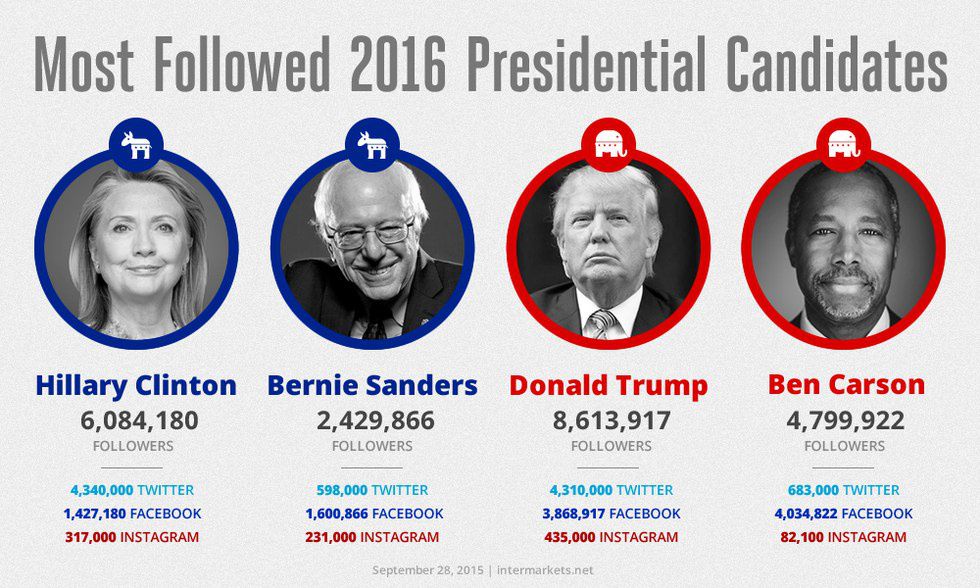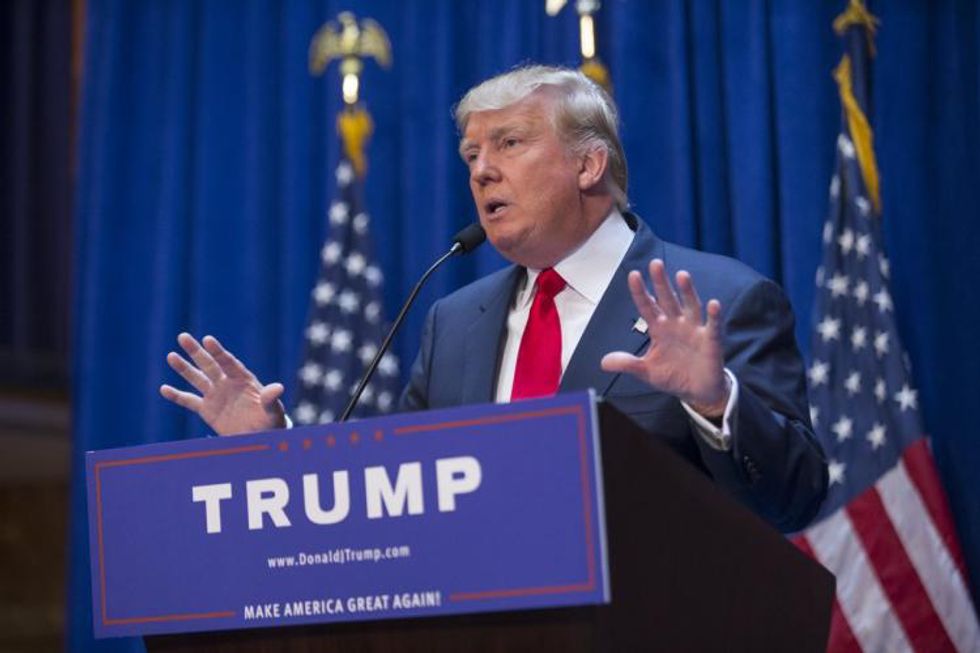As the 2016 election process ripens, it is imperative to acknowledge the nuances that distinguish it from previous democratic processes. While the 2012 election came at a time when social media was transitioning into the massive platform it is today, the impact observed from these networks in the current electoral procedure is unprecedented. Thus making it safe to assume that this is the first official “social media election.”
But just how important do these political colossi deem social media? Well, in a recent article published by Adweek, advertising consulting firm Borell Associates mentioned that “politicians will be allocating over 9 percent of media budget towards digital and social media — this comes to an estimated $1 billion.” However, because of the current constantly interconnected state of our society, public statements and “incriminating” information exhumed in the past tend to go viral. In my experience, this has very contrasting effects on poll results and overall social perception of certain candidates. Mirroring the qualities of a double-edged sword within my immediate political “echo chamber”.
First, it is incredibly hard to overlook the popularity levels that Democrat Presidential Candidate Bernie Sanders has enjoyed amongst social media's primary user base, young adults. Sanders' proposals have captivated the majority of my immediate social media circle's attention and have been received glowing praise. Moreover, these ideas are debated all throughout different platforms (primarily Facebook), making social media a viable battleground for Sanders to start a grass-roots type of campaign. However, if this is any indication of Sander's popularity at a major scale, then his supporter base might be doing him a disservice. This being said considering he hasn't enjoyed popular electoral success in his endeavor to steal the candidacy away from fellow Democrat contender, Hillary Clinton.
Another observation I've found has been the acknowledgement that every statement uttered by a politician that sounds remotely radical or convention defying will be under scrutiny at a massive scale. For example: likely Republican presidential candidate, Donald Trump, issued a statement where he promised to expand American libel laws in order to sue media outlets. This caused a major wave of controversy within my Facebook news feed, drawing comparisons to famous communist despots and their intimidation tactics to keep a “clean image” in the media. However, the claim is completely unexplored and on this social media space it acts mostly as bait for vitriol to be spewed by supporters and dissenters alike. It is important to note that in my experience, Mr. Trump's comments are the most controversial both in the Associated Press and social media realms for better or for worse. Moreover, it is my belief that this has boosted his campaign to the alpine heights it has been able to reach by providing discussion and polemical opinions.
Lastly, I have found a complete wear-and-tear feeling to my political sense. It seems to me as if this electoral process has dragged on for a long period of time. I attribute it to the overwhelming over-saturation of political content on social media that seems unavoidable in a world that seems to be ever so connected by social applications.









 Photo by
Photo by 









